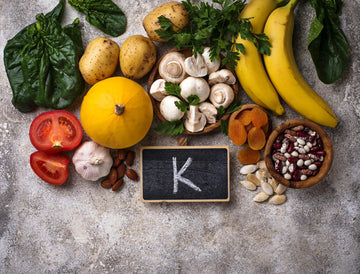Potassium is an important mineral that is found in many foods and supports a variety of functions in the body. Although potassium often receives less attention than other nutrients, it is nevertheless essential for a balanced diet. In this article, you will learn why potassium is important in the diet, which foods are particularly rich in potassium and how you can best meet your needs.
What is potassium?
Potassium is a naturally occurring element found in many foods. It is widely distributed in nature and is a component of a wide variety of foods such as fruits, vegetables, legumes and nuts. The body needs an adequate supply of potassium through the diet to ensure the normal functioning of the metabolism.
The role of potassium in nutrition
Potassium is found in a variety of foods that can be regularly included in the diet. A balanced intake of potassium through the diet contributes to a varied diet.
How much potassium do you need?
The recommended daily intake of potassium is about 3,500 to 4,700 mg, depending on individual needs and living conditions. It is important to meet the requirement through a balanced diet.
Potassium-rich foods
A balanced diet that includes potassium-rich foods can help meet your needs. Here are some foods that are a good source of potassium:
1. Bananas – A well-known potassium-rich fruit.
2. Sweet potatoes – Rich in potassium and a popular side dish.
3. Avocados – Versatile in different dishes.
4. Spinach – A nutritious ingredient for salads and smoothies.
5. Potatoes – A versatile staple food.
6. Legumes – Beans, lentils and chickpeas are rich in nutrients.
7. Tomatoes – Can be used fresh or dried in many dishes.
8. Orange juice – A way to get potassium and vitamin C.
9. Nuts and seeds – A good addition to snacks and salads.
Tips for optimizing potassium intake
1. Include potassium-rich foods in every meal: Spread your intake throughout the day by choosing foods that contain potassium at every meal.
2. Gentle preparation: Make sure to prepare food in such a way that as many nutrients as possible are retained.
3. Eat a varied diet: Try to include a variety of potassium-rich foods in your diet.
Conclusion
A balanced diet that regularly includes potassium-rich foods can be part of a healthy lifestyle. Potassium-rich foods such as fruits, vegetables and nuts are a good addition to a varied diet. Make sure to regularly include potassium-rich foods in your diet to keep your diet balanced.





